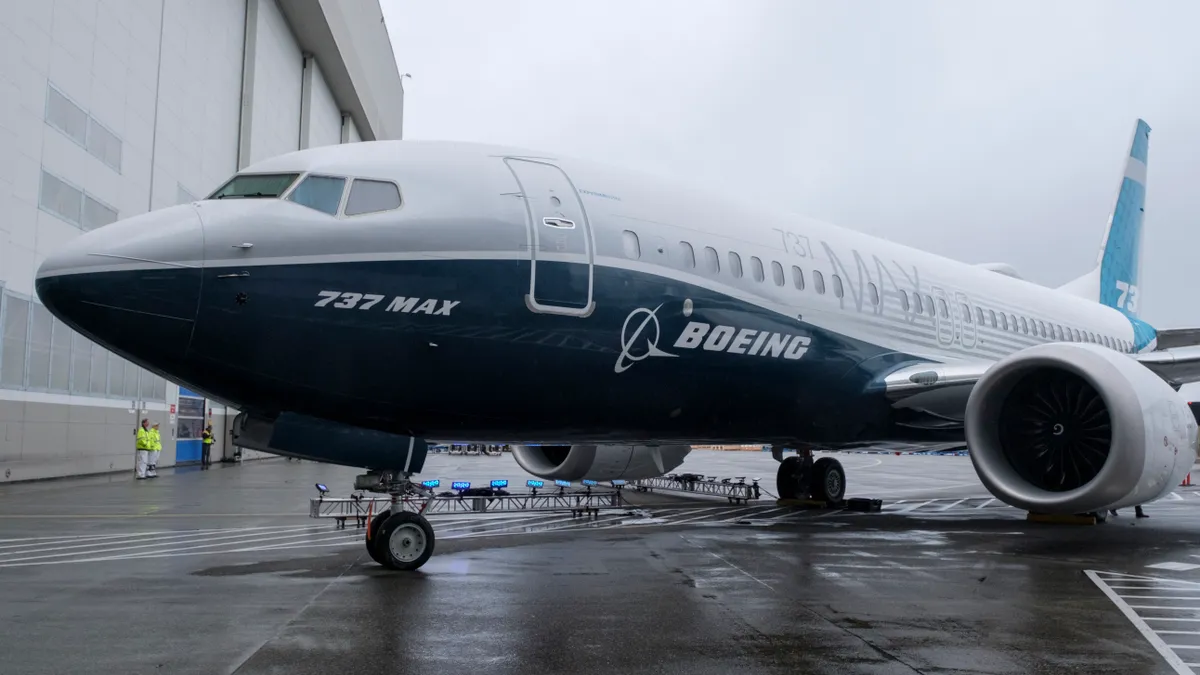The U.S. The Securities and Exchange Commission (SEC) fined Boeing $200 million and its former CEO Dennis Muilenburg $1 million for misleading investors about a 737 MAX safety issue in settlements announced last week.
Central to the claim against the company and former CEO is a 2016 text exchange between two engineers after one of them confirmed safety risks stemming from the company’s expansion of an automated anti-stall feature. In-house lawyers brought the texts to the attention of company leadership.
Boeing neither disclosed the expansion of the feature to the Federal Aviation Administration nor acknowledged that it knew about the safety risk it caused in public communications after two 737 MAX planes crashed within months of each other in 2018 and 2019.
“The 737 MAX is as safe as any airplane that has ever flown the skies,” said a press release the company posted on its website after a 737 MAX jet flown by Lion Air crashed after takeoff from Jakarta, Indonesia, killing everyone on board.
The statement is misleading, the SEC claims, because the company knew the anti-stall feature, designed and approved by the FAA to activate only in extreme situations, was engaging during routine operations because of the company’s decision to expand its use.
Also misleading was a statement several months later by Muilenburg, after a second jet, flown by Ethiopian Air, crashed after takeoff from Addis, Ababa, killing everyone on board.
“There was no surprise or gap or unknown here or something that somehow slipped through a certification process,” Muilenburg said on the company’s first-quarter 2019 earnings call. “Quite the opposite. We know exactly how the airplane was designed. We know exactly how it was certified.”
The statement is misleading, the SEC says, because Muilenburg had been made aware of engineers’ concerns earlier by the company’s lawyers and that the certification was based on the anti-stall system as it was designed before its use was expanded.
“In-house counsel informed Muilenburg and other senior executives about the existence of the … chat,” the SEC says in its order. “Following that communication, Muilenburg understood the … chat to be ‘concerning.’”
In that text exchange, an engineer noted the anti-stall feature, referred to as MCAS, for “Maneuvering Characteristics Augmentation System,” activated in situations involving ordinary operations.
“Oh shocker alerT!,” the engineer texted, as recounted in the SEC order, “MCAS is now active down to M[ach] .2 / It’s running rampant in the sim[ulator] on me…”
Because Boeing had received approval for its 737 MAX training protocol from the FAA on the basis of the original, rather than the expanded, anti-stall technology, the approval didn’t reflect the increased safety risk the change represented.
“So I basically lied to the regulators (unknowingly),” the engineer texted.
“[I]t wasn’t a lie,” the second engineer texted back, “no one told us that was the case.”
Boeing’s in-house legal team learned of the text exchange and shared it with Muilenburg, but neither the press release, which he approved, nor his statement during the earnings call reflected the safety implications that it raised.
"Boeing and Muilenburg put profits over people by misleading investors about the safety of the 737 MAX, all in an effort to rehabilitate Boeing's image following two tragic accidents that resulted in the loss of 346 lives and incalculable grief to so many families," Gurbir Grewal, director of the SEC's enforcement division, said in a statement.











